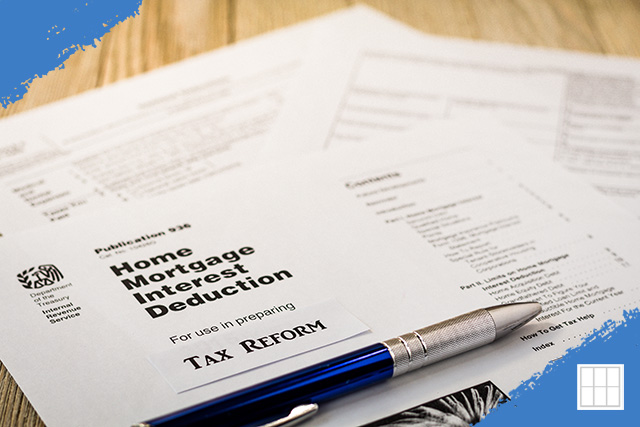Private Mortgage insurance, also known as PMI, is a type of insurance that protect lenders…

15 vs 30 Year Mortgage: Which is Right for You?
When it comes to financing your home, choosing between a 15 vs 30 Year Mortgage is a significant decision. Each option has its advantages and disadvantages, and the right choice depends on your financial situation and long-term goals. In this guide, we’ll explore the key differences between 15-year and 30-year mortgages to help you make an informed decision. Understanding these differences can have a lasting impact on your financial health and homeownership experience.
What is a 15-Year Mortgage?
A 15-year mortgage is a home loan that you repay over 15 years. This shorter loan term means you’ll pay off your mortgage faster than with a 30-year mortgage. Here are some key benefits and considerations:
Benefits of a 15-Year Mortgage
- Lower Interest Rates: 15-year mortgages typically come with lower interest rates compared to 30-year mortgages, saving you money over the life of the loan. The lower interest rates are a result of the reduced risk for lenders since the loan is repaid in a shorter period.
- Faster Equity Build-Up: With higher monthly payments, you’ll build equity in your home more quickly. This can be beneficial if you plan to sell your home or take out a home equity loan in the future.
- Less Interest Paid: Over the life of the loan, you’ll pay significantly less in interest, which can save you tens of thousands of dollars. This can be particularly advantageous if you want to free up your finances for other investments or retirement savings.
Considerations of a 15-Year Mortgage
- Higher Monthly Payments: Because you’re paying off the loan in half the time, your monthly payments will be higher. This can strain your monthly budget, especially if you have other financial commitments.
- Less Flexibility: The higher payments might leave you with less financial flexibility for other expenses or investments. It’s important to consider whether you can comfortably afford the higher payments over the long term.
What is a 30-Year Mortgage?
A 30-year mortgage is a home loan that you repay over 30 years. This longer loan term is the most popular choice among homebuyers. Here are some key benefits and considerations:
Benefits of a 30-Year Mortgage
- Lower Monthly Payments: Spreading the loan over 30 years results in lower monthly payments, making homeownership more affordable. This can be especially beneficial for first-time homebuyers or those with limited income.
- More Financial Flexibility: Lower payments give you more room in your budget for savings, investments, or other expenses. This flexibility can help you manage unexpected costs and maintain a comfortable lifestyle.
- Potential Tax Benefits: Mortgage interest may be tax-deductible, which can provide additional financial benefits. However, it’s important to consult with a tax professional to understand how these benefits apply to your specific situation.
Considerations of a 30-Year Mortgage
- Higher Interest Rates: 30-year mortgages usually come with higher interest rates compared to 15-year mortgages. This is because the longer loan term poses a greater risk to lenders.
- More Interest Paid Over Time: You’ll pay more in interest over the life of the loan, which can add up to a significant amount. This can affect your long-term financial goals, such as saving for retirement or funding your children’s education.
Comparing 15 vs 30 Year Mortgages
To decide between a 15-year and a 30-year mortgage, consider the following factors:
Monthly Payments
- 15-Year Mortgage: Higher monthly payments due to the shorter loan term. This can be a challenge for some borrowers, but it also means you’ll pay off your mortgage faster.
- 30-Year Mortgage: Lower monthly payments, providing more budget flexibility. This can make it easier to manage your finances, but you’ll be paying off your mortgage for a longer period.
Total Interest Paid
- 15-Year Mortgage: Less interest paid over the life of the loan. This can save you a substantial amount of money and help you achieve financial freedom sooner.
- 30-Year Mortgage: More interest paid over the life of the loan. While the monthly payments are lower, the total cost of the loan is higher due to the extended repayment period.
Financial Goals
- 15-Year Mortgage: Ideal if you want to pay off your mortgage quickly and save on interest. This option is best suited for those who have stable income and can handle the higher monthly payments.
- 30-Year Mortgage: Better if you need lower monthly payments and greater financial flexibility. This is a good choice for those who prefer to allocate their funds towards other investments or savings.
Real-Life Scenarios
Let’s consider some real-life scenarios to help you decide which mortgage term might be right for you.
Scenario 1: Young Professionals
John and Sarah are young professionals in their early 30s. They have a combined stable income and plan to start a family soon. They choose a 30-year mortgage for their first home. The lower monthly payments allow them to save for their children’s education and build an emergency fund. The flexibility in their budget helps them manage unexpected expenses without financial strain.
Scenario 2: Established Homeowners
Mark and Lisa are in their late 40s with a stable, high income. They already own a home with significant equity. They decide to refinance to a 15-year mortgage to pay off their home sooner and reduce the total interest paid. Their higher monthly payments fit comfortably within their budget, and they plan to retire mortgage-free, enhancing their financial security in retirement.
Which Mortgage is Right for You?
Choosing between a 15 vs 30 year mortgage depends on your personal financial situation and goals. Here are some scenarios to help you decide:
- Choose a 15-Year Mortgage if: You have a stable income, can afford higher monthly payments, and want to minimize the amount of interest paid over time. This option is also suitable if you plan to retire soon and wish to be debt-free.
- Choose a 30-Year Mortgage if: You prefer lower monthly payments, need more budget flexibility, or plan to invest the savings from lower payments elsewhere. This can also be a good choice if you’re just starting your career and anticipate future income growth.
Tips for Making Your Decision
Here are some additional tips to help you decide between a 15-year and a 30-year mortgage:
Assess Your Financial Situation
Take a close look at your current financial situation, including your income, expenses, savings, and financial goals. Understanding your overall financial health will help you determine which mortgage term is more feasible for you.
Consider Future Plans
Think about your long-term plans. Are you planning to start a family, change careers, or move in the near future? Your future plans can impact your ability to make higher monthly payments or your need for financial flexibility.
Consult a Financial Advisor
A financial advisor can provide personalized advice based on your unique financial situation. They can help you weigh the pros and cons of each mortgage term and guide you towards the best decision for your needs.
15 vs 30 Year Mortgage Conclusion
Deciding between a 15-year and a 30-year mortgage is a crucial step in your home buying or refinancing journey. Consider your financial situation, long-term goals, and the pros and cons of each option. By understanding the differences, you can make an informed decision that best suits your needs. Whether you choose a 15-year mortgage to pay off your home faster or a 30-year mortgage for lower monthly payments, the key is to select the option that aligns with your financial goals and lifestyle.



